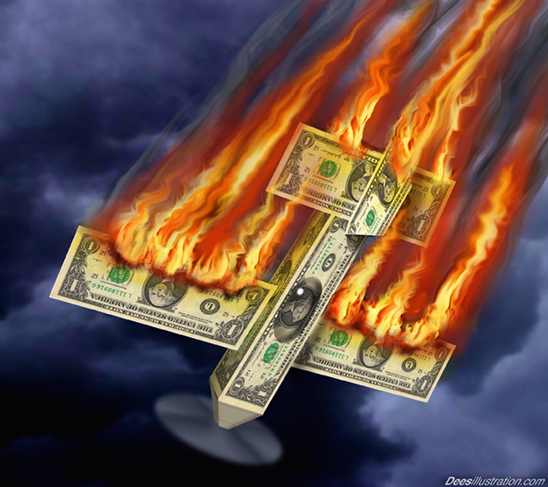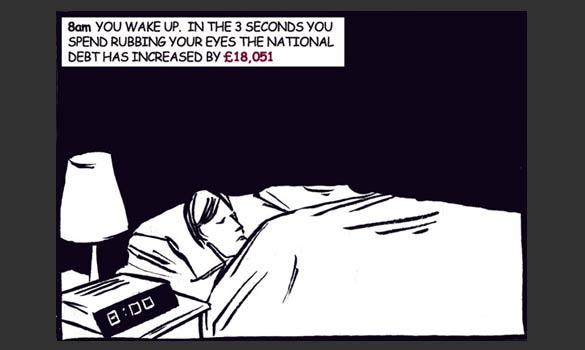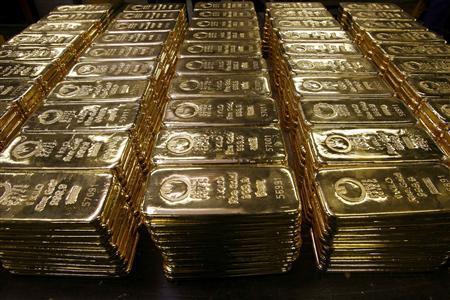Watch the decontamination!
Month: September 2009
Canadian Health Care, Even With Queues, Bests US
Sept. 18 (Bloomberg) — Opponents of overhauling U.S. health care argue that Canada shows what happens when government gets involved in medicine, saying the country is plagued by inferior treatment, rationing and months-long queues.
The allegations are wrong by almost every measure, according to research by the Organization for Economic Cooperation and Development and other independent studies published during the past five years. While delays do occur for non-emergency procedures, data indicate that Canada’s system of universal health coverage provides care as good as in the U.S., at a cost 47 percent less for each person.
“There is an image of Canadians flooding across the border to get care,” said Donald Berwick, a Harvard University health- policy specialist and pediatrician who heads the Boston-based nonprofit Institute for Healthcare Improvement. “That’s just not the case. The public in Canada is far more satisfied with the system than they are in the U.S. and health care is at least as good, with much more contained costs.”
Canadians live two to three years longer than Americans and are as likely to survive heart attacks, childhood leukemia, and breast and cervical cancer, according to the OECD, the Paris- based coalition of 30 industrialized nations.
Deaths considered preventable through health care are less frequent in Canada than in the U.S., according to a January 2008 report in the journal Health Affairs. In the study by British researchers, Canada placed sixth among 19 countries surveyed, with 77 deaths for every 100,000 people. That compared with the last-place finish of the U.S., with 110 deaths.
Infant Mortality
The Canadian mortality rate from asthma is one quarter of the U.S.’s, and the infant mortality rate is 34 percent lower, OECD data show. People in Canada are also 21 percent more apt to survive five years after a liver transplant.
Putin says US dollar issuance ‘uncontrolled’, calls for diversified reserves
SOCHI, Russia — Russia’s Prime Minister Vladimir Putin on Friday said other currencies besides the dollar should be used as global reserves to reduce the risks posed by swelling U.S. debt.
Putin, who spoke at an international investment forum in the Black Sea resort of Sochi, chided the United States for “an uncontrolled issue of dollars” and said the American currency’s dominance had been “one of the triggers” of the global crisis.
Putin renewed Russia’s call on the U.S. administration and global community to give the green light to alternative reserve currencies: “If there are several reserve currencies, this will not harm the U.S. economy in any way.”
President Dmitry Medvedev’s economic advisor, Arkady Dvorkovich, said Thursday that Russia would at next week’s G20 summit in Pittsburgh press for more follow-through on measures to confront the global downturn and to change Western-dominated international financial institutions.
Russia and China have pushed for alternative reserve currencies, but being the world’s largest holders of U.S. dollar assets – such as Treasuries – they are unlikely to abandon it. Dvorkovich stressed on Thursday that Russia is not out to replace the dollar, but only diversify.
Putin, meanwhile, also promised to encourage foreign investment in Russia by removing bureaucratic hurdles.
Read morePutin says US dollar issuance ‘uncontrolled’, calls for diversified reserves
Hedge Funds’ ATM Moves From Tokyo to Washington
Sept. 18 (Bloomberg) — China is getting all worked up about the wrong thing when it comes to the U.S.
Forget these nascent trade wars over tires, cars and chickens. China’s real problem is how quickly the dollars they hold in great quantity are getting all the respect of pesos these days. Sound like hyperbole? Not when you consider what may be the hottest investment of 2010: the dollar-carry trade.
Move over Japan. Investors spent a decade borrowing in zero-interest-rate yen and putting the funds in higher-yielding assets overseas. It’s the U.S.’s turn to flood the world with cheap funding and the risks of this going wrong are huge.
The carry trade has never been a proud part of Japan’s post-bubble years. Officials in Tokyo rarely talk about the yen’s role in funding risky or highly leveraged bets on markets from Zimbabwe to New Zealand. Japan never set out to become a giant automated teller machine for speculators. It was a side effect of policies aimed at ending deflation.
The perils of the carry trade were seen in October 1998. Russia’s debt default and the implosion of Long-Term Capital Management LP devastated global markets. It was a decidedly panicky and messy period culminating in the yen, which had been weakening for years, surging 20 percent in less than two months.
Now imagine what might happen if the world’s reserve currency became its most shorted. Carry trades are, after all, bets that the funding currency will weaken further or stay down for an extended period of time. It’s also a wager that a central bank is trapped into keeping borrowing costs low indefinitely.
Cheapest Currency
“The dollar is the cheapest funding currency bar none and only challenged by the U.K. in terms of the risks from money printing and escalating deficits,” says Simon Grose-Hodge, a strategist at LGT Group in Singapore.
Obama Asks NY Governor Paterson To Withdraw From Reelection Race, Paterson Refuses, Cuomo To Be “Promoted” Shortly
Related article: Eliot Spitzer: Federal Reserve is a Ponzi scheme, an inside job:
The Federal Reserve – the quasi-autonomous body that controls the US’s money supply – is a “Ponzi scheme” that created “bubble after bubble” in the US economy and needs to be held accountable for its actions, says Eliot Spitzer, the former governor and attorney-general of New York.
Is a political scandal brewing in New York? A year and a half after taking over for a disgraced Spitzer, Paterson is now at war with everyone, but most notable the New York State Budget, and now, the President.
Reports the New York Times:
President Obama has sent a request to Gov. David A. Paterson that he withdraw from the New York governor’s race, fearing that Mr. Paterson cannot recover from his dismal political standing, according to two senior administration officials and a New York Democratic operative with direct knowledge of the situation.
The decision to ask Mr. Paterson to step aside was proposed by political advisers to Mr. Obama, but approved by the president himself, one of the administration officials said.
“Is there concern about the situation in New York? Absolutely,” the second administration official said Saturday evening. “Has that concern been conveyed to the governor? Yes.”
The president’s request was conveyed to the Mr. Paterson by Representative Gregory W. Meeks, a Queens Democrat, who has developed a strong relationship with the Obama administration, they said.
Yet Paterson seems unwilling to pull a Perella-Weinberg just yet:
“The message the White House wanted to send – that it wants Paterson to step aside – was delivered,” said the Democratic operative,, who spoke on condition of anonymity because the discussions were intended to be confidential. “He is resistant.”
What is the reason for this escalation? Simple – Bank Of America, and SEC-gate. Throw in some potential race issues, and you have one clusterfuck of a situation about to develop:
Now, Mr. Cuomo effectively has the blessing of the nation’s first black president to run against New York’s first black governor. That will probably neutralize any criticism he may face among the governor’s prominent black allies, including Representative Charles B. Rangel of Harlem, who warned this year that the party would become racially polarized if Mr. Cuomo took on Mr. Paterson.
With Andrew Cuomo now elbow deep in the Merrill bonus investigation, and likely about to file criminal charges against Ken Lewis any minute, what better way to shut him up than to promote him immediately to the post he will obtain sooner or later anyway. If in the meantime, the Faustian bargain between Lewis and Paulson/Bernanke can be retained without Lewis actually going to jail for folding like a lawn chair to threats about his job security by the Chairman, so much the better. As for the simple matter of how and why the President can so blatantly interfere in State affairs, and specifically nudging the direction of popular elections, which ultimately are the domain purely of US citizens, it is likely that nobody will care.
Submitted by Tyler Durden on 09/19/2009
Source: ZeroHedge
Global Warming Expert Prof. Latif: Earth has not warmed for nearly a decade and that we are likely entering “one or even two decades during which temperatures cool.”
Scientists pull an about face on global warming
Imagine if Pope Benedict gave a speech saying the Catholic Church has had it wrong all these centuries; there is no reason priests shouldn’t marry. That might generate the odd headline, no?
Or if Don Cherry claimed suddenly to like European hockey players who wear visors and float around the ice, never bodychecking opponents.
Or Jack Layton insisted that unions are ruining the economy by distorting wages and protecting unproductive workers.
Or Stephen Harper began arguing that it makes good economic sense for Ottawa to own a car company. (Oh, wait, that one happened.) But at least, the Tories-buy-GM aberration made all the papers and newscasts.
When a leading proponent for one point of view suddenly starts batting for the other side, it’s usually newsworthy.
So why was a speech last week by Prof. Mojib Latif of Germany’s Leibniz Institute not given more prominence?
Latif is one of the leading climate modellers in the world. He is the recipient of several international climate-study prizes and a lead author for the United Nations Intergovernmental Panel on Climate Change (IPCC). He has contributed significantly to the IPCC’s last two five-year reports that have stated unequivocally that man-made greenhouse emissions are causing the planet to warm dangerously.
Yet last week in Geneva, at the UN’s World Climate Conference–an annual gathering of the so-called “scientific consensus” on man-made climate change –Latif conceded the Earth has not warmed for nearly a decade and that we are likely entering “one or even two decades during which temperatures cool.”
The global warming theory has been based all along on the idea that the Atlantic and Pacific Oceans would absorb much of the greenhouse warming caused by a rise in man-made carbon dioxide, then they would let off that heat and warm the atmosphere and the land.
But as Latif pointed out, the Atlantic, and particularly the North Atlantic, has been cooling instead. And it looks set to continue a cooling phase for 10 to 20 more years.
“How much?” he wondered before the assembled delegates. “The jury is still out.”
2 Nobel Economists Confirm: Credit is NOT Created Out of Excess Reserves
We’ve all been taught that banks first build up deposits, and then loan extend credit and loan out their excess reserves.
But critics of the current banking system claim that this is not true, and that the order is actually reversed.
Sounds crazy, right?
Certainly.
But take a look at the following quotes:
“[Banks] do not really pay out loans from the money they receive as deposits. If they did this, no additional money would be created. What they do when they make loans is to accept promissory notes in exchange for credits to the borrowers’ transaction accounts.”
– 1960s Chicago Federal Reserve Bank booklet entitled “Modern Money Mechanics”“The modern banking system manufactures money out of nothing. The process is perhaps the most astounding piece of sleight of hand that was ever invented. Banking was conceived in inequity and born in sin . . . . Bankers own the earth. Take it away from them but leave them the power to create money, and, with a flick of a pen, they will create enough money to buy it back again. . . . Take this great power away from them and all great fortunes like mine will disappear, for then this would be a better and happier world to live in. . . . But, if you want to continue to be the slaves of bankers and pay the cost of your own slavery, then let bankers continue to create money and control credit.”
– Sir Josiah Stamp, president of the Bank of England and the second richest man in Britain in the 1920s.Banks create money. That is what they are for. . . . The manufacturing process to make money consists of making an entry in a book. That is all. . . . Each and every time a Bank makes a loan . . . new Bank credit is created — brand new money.
– Graham Towers, Governor of the Bank of Canada from 1935 to 1955[W]hen a bank makes a loan, it simply adds to the borrower’s deposit account in the bank by the amount of the loan. The money is not taken from anyone else’s deposit; it was not previously paid in to the bank by anyone. It’s new money, created by the bank for the use of the borrower.
– Robert B. Anderson, Secretary of the Treasury under Eisenhower, in an interview reported in the August 31, 1959 issue of U.S. News and World Report
This is a bizarre concept, and you might not be convinced by these claims.
But as Steve Keen writes today, 2 Nobel-prize winning economists have shown that the assumption that reserves are created from excess deposits is not true :
The model of money creation that Obama’s economic advisers have sold him was shown to be empirically false over three decades ago.
The first economist to establish this was the American Post Keynesian economist Basil Moore, but similar results were found by two of the staunchest neoclassical economists, Nobel Prize winners Kydland and Prescott in a 1990 paper Real Facts and a Monetary Myth.
Looking at the timing of economic variables, they found that credit money was created about 4 periods before government money. However, the “money multiplier” model argues that government money is created first to bolster bank reserves, and then credit money is created afterwards by the process of banks lending out their increased reserves.
Kydland and Prescott observed at the end of their paper that:
Introducing money and credit into growth theory in a way that accounts for the cyclical behavior of monetary as well as real aggregates is an important open problem in economics.
In other words, if the conventional view that excess reserves (stemming either from customer deposits or government infusions of money) lead to increased lending were correct, then Kydland and Prescott would have found that credit is extended by the banks (i.e. loaned out to customers) after the banks received infusions of money from the government. Instead, they found that the extension of credit preceded the receipt of government monies.
Read more2 Nobel Economists Confirm: Credit is NOT Created Out of Excess Reserves
Ron Paul: End the Fed, Save the Dollar
Poll: Should The Fed Be Abolished?
|
||||||||||||||||||||||
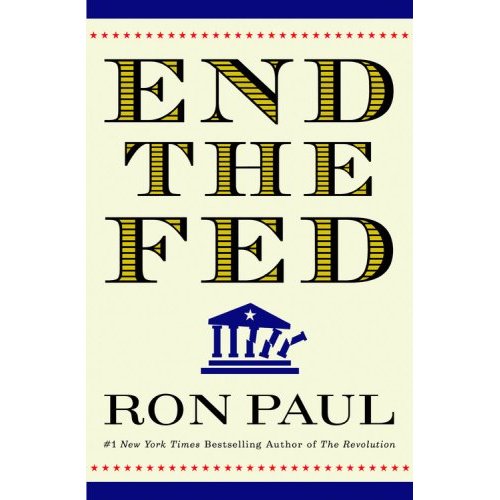 |
| End The Fed by Ron Paul
|
“Nothing good can come from the Federal Reserve,” writes Texas Congressman Ron Paul in his latest book hitting shelves this week, titled “End the Fed.”
“It is the biggest taxer of them all. Diluting the value of the dollar by increasing its supply is a vicious, sinister tax on the poor and middle class.”
Paul makes the case that the Fed is the main culprit responsible for the current economic mess the country faces through the destructive policies of cheap credit and excessive money printing.
“Prosperity can never be achieved by cheap credit,” says Paul. “If that were so, no one would have to work for a living. Inflated prices only deceive one into believing that real wealth has been created.”
The Federal Reserve, created in 1913, has been acting as the main central bank of the United States for nearly one hundred years. Many Americans are either not sure or not interested in what role the Fed plays in managing the economy. “The economic crisis has changed everything,” writes Congressman Paul.
Paul is currently pushing for passage of a bill, H.R. 1207, that would allow for an unprecedented audit of the Federal Reserve. The bill has 289 co-sponsors, and is gaining solid momentum in the House of Representatives.
 |
| Ron Paul
|
“The worse the economy gets, the more power Congress is willing to grant to the Federal Reserve. Trillions of dollars created and distributed by the Fed with no requirement to submit to any oversight” argues Congressman Paul.
“End the Fed“ is a sharp counter to Keynesian economic theory, and takes aim at the hazards of a managed economy.
Paul, a strong advocate of free-markets and the Austrian school of economics counters those looking to blame the near collapse of the financial system on capitalism by penning, “Manipulating the money supply and interest rates rejects all the principles of the free market, and so it cannot be said that too free a market caused this mess. The market was not free at all. It was manipulated and distorted.”
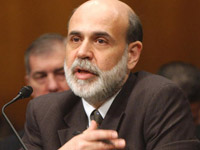 |
| Ben Bernanke
|
But, wait.
Didn’t Fed Chairman Bernanke hint that the recession may already be over?
Wouldn’t that indicate that the “emergency interventions” of the past year or so worked to stabilize the economy, and all is on its way back to normal?
Paul writes, “The Fed is using all its power to drive the monetary base to unprecedented heights, creating trillions in new money out of thin air. From April 2008 to April 2009, the adjusted monetary base shot up from $856 billion to an unbelievable $1.749 trillion. Was there any new wealth created? New production? No, this was the Ben Bernanke printing press at work. If you and I did anything similar, we would be called counterfeiters and be sent away for a lifetime in prison. But, when the Fed does it – complete with a scientific gloss – it is seen as the perfectly legal and responsible conduct of monetary policy.”
On the inflation front, Paul adds “It’s as if we still believe that money can be grown on trees, and we don’t stop to realize that if it did grow on trees, it would take on the value of leaves in the fall, to be either mulched or bagged and put in a landfill. That is to say, it would be worthless.”
Britain’s public debt hits £800 billion – the highest on record
The UK and the US are broke.
Related articles:
– UK monthly budget deficit soars to record £16bn (Guardian)
– Foreign investment in UK falls by half (Guardian)
Britain is clocking up debt at a rate of £6,017 per second as the Government struggles to balance the books. With tax receipts plummeting because of the recession, state borrowing grew by £16.1 billion last month – almost twice the entire budget for the 2012 Olympics.
Net borrowing for the first five months of the financial year stood at £65.3 billion, compared with £26.1 billion at the same stage last year. Total borrowing soared past the £800 billion mark for the first time and total state debt as a proportion of national output reached 57.5 per cent.
Just to pay the interest on its ballooning debts the Government must find more than £30 billion a year – about £500 for every man, woman and child in the country.
The figures from the Office for National Statistics (ONS) show that tax receipts in August dived by 9 per cent compared with August 2008, while public spending rose by almost 3 per cent. The widening gulf was bridged by borrowing. Spending on benefits grew by £900 million to £13.5 billion as unemployment soared.
Taking fright at the figures, foreign exchange dealers sent sterling diving to a four-month low against the euro. The value of the pound fell by more than 1 per cent against the dollar.
Analysts said that the Budget forecast by Alistair Darling, the Chancellor, that additional borrowings would be £175 billion this year was not pessimistic enough and predicted that borrowing would be between £15 billion and £50 billion above that forecast.
John Hawksworth, chief economist at PricewaterhouseCoopers, said: “It seems likely that budget deficits will overshoot Treasury forecasts not only in 2009-10 but for years to come.”
Philip Hammond, the Shadow Chief Secretary to the Treasury, said: “We used to worry about borrowing £16 billion in an entire year. Now Labour have done it in just one month. These shocking figures show the depth of Gordon Brown’s debt crisis and just how irresponsible he was to pretend that spending cuts weren’t necessary.”
Read moreBritain’s public debt hits £800 billion – the highest on record
China’s ‘cancer villages’ bear witness to economic boom

A lake near Da Bao Shan in the northern part of China’s Guangdong province turns reddish brown after the water was contaminated for years August 27, 2009. It is highly unusual for people to contract cancer at tender ages, but not in the villages around Da Bao Shan, one of China’s largest mine that produces lead, zine, cadmium and other heavy metals. (REUTERS)
HONG KONG (Reuters) – One needs to look no further then the river that runs through Shangba to understand the extent of the heavy metals pollution that experts say has turned the hamlets in this region of southern China into cancer villages.
The river’s flow ranges from murky white to a bright shade of orange and the waters are so viscous that they barely ripple in the breeze. In Shangba, the river brings death, not sustenance.
“All the fish died, even chickens and ducks that drank from the river died. If you put your leg in the water, you’ll get rashes and a terrible itch,” said He Shuncai, a 34-year-old rice farmer who has lived in Shangba all his life.
“Last year alone, six people in our village died from cancer and they were in their 30s and 40s.”
Read moreChina’s ‘cancer villages’ bear witness to economic boom
IMF approves sale of 403 tonnes gold reserves
This is not done to help poor countries.
Now the elite, that has created the crisis, can buy more ‘cheap’ gold.
Gordon Brown again!
– Gordon Brown’s decision to sell half of the UK’s gold reserves ‘cost UK £5billion’
People will say Gordon Brown is just a terrible investor/market timer, but he is an elite puppet like Obama, Bush, Blair etc. working to establish the ‘New World Order’.
Related information:
– 19 Jan 2007: Brown wants a ‘new world order’ (BBC NEWS)
– 18 Mai 2007: Gordon Brown New World Order Speech (YouTube) (!)
– Jan 22, 2008: Brown’s secret talks on ‘new world order’ (NZ Herald)
– Jan. 26, 2009: Gordon Brown sees ‘New World Order’ after crisis (AFP)
IMF approves $13bn gold sale to aid poor states
The International Monetary Fund has approved a sale of 403 metric tonnes of gold reserves, in a move likely to raise $13bn (£8bn) of cash to replenish its coffers for lending to low-income countries hit by the global economic downturn.
The sale amounts to roughly an eighth of the institution’s stockpile of the precious metal and comes as gold prices hit record highs, boosted by investors seeking safety away from volatile stock markets.
Dominque Strauss-Kahn, the IMF’s managing director, said sales would be conducted in a “responsible and transparent manner that avoids disruption to the gold market”. Speaking after a meeting of the IMF’s executive committee, he said the initiative would “put the financing of the IMF on a sound long-term footing and enable us to step up much needed concessional lending to the poorest countries”.
Among those pushing for the IMF to raise funds was Gordon Brown, who urged his counterparts to agree a sale at a meeting of G20 countries in London in April.
Another $100 Billion of U.S. Government Bonds Seized in Italy
Last time:
– The Bearer Bond Saga: It Gets More Odd
– The Japanese Bond Smugglers Are Missing
– The US Bearer Bonds ‘Coincidence’
– The Saga Of The Bearer Bonds; Smuggled Bonds Are Probably Genuine
– Italy Seizes $135 BILLION Of US Bonds: Smuggling Or Counterfeit-Printing?
Sept. 18 (Bloomberg) — The U.S. Secret Service is examining more than $100 billion of U.S. government bonds confiscated in northern Italy in August, just two months after $134 billion of allegedly fake securities were seized in a nearby town.
The Secret Service is analyzing whether the bonds taken in August may be counterfeit, said a spokeswoman for the U.S. embassy in Rome. Italy’s financial police in Varese, north of Milan, arrested two individuals carrying the securities in a briefcase, according to a person involved in the case.
The two men currently are in custody as prosecutors in the town of Busto Arsizio carry out their investigation, the person said. The seized notes include securities with face values of $500 million and $1 billion, Italian daily MF reported today, without saying where it got the information.
“There must be a well-organized group behind these alleged crimes,” Fabio Polimeni, a Milan lawyer specializing in counterfeiting cases, said.
Italian authorities seized U.S. treasuries on June 4 with a face value of more than $134 billion from two Japanese travelers attempting to cross into Switzerland. The two men later disappeared and the case is still under investigation. The U.S. government bonds found in the false bottom of a suitcase carried by the men were fake, a U.S. Treasury spokesman said June 18.
Read moreAnother $100 Billion of U.S. Government Bonds Seized in Italy
US missile system’s track record: test delays, failed launches, missed targets
Designed to feed the military-industrial complex with taxpayer money.
For a system designed to protect the country from nuclear oblivion, the US national missile defence project’s history of failure has long raised eyebrows among scientists.
Years of testing have seen rocket-propelled interceptors refuse to launch from their silos, fail to separate from their boosters and miss their targets, sometimes by hundreds of miles.
Military officials can claim only a 50% hit rate, and only then in tests that are far removed from a real world attack scenario, said David Wright, a physicist and co-director of global security at the Union of Concerned Scientists in Cambridge, Massachusetts.
Some tests were delayed for months because the weather was not considered good enough for the interceptor to find its target.
When tests did go ahead, missile operators knew when the target would be launched and its trajectory in the sky. The missile system that was due to be installed in Europe had undergone even less rigorous testing. The plans included a two-stage interceptor which has yet to even begin flight tests.
Read moreUS missile system’s track record: test delays, failed launches, missed targets
Why Is President Obama Still Using Blackwater?
About Jeremy Scahill
Jeremy Scahill, a Puffin Foundation Writing Fellow at The Nation Institute, is the author of the bestselling Blackwater: The Rise of the World’s Most Powerful Mercenary Army. He is an award-winning investigative journalist and correspondent for the national radio and TV program Democracy Now!.
Two years ago on September 16, 2007, on a steamy hot Baghdad day with temperatures reaching 100 degrees, a heavily armed Blackwater convoy entered a congested intersection at Nisour Square in the Mansour district of the Iraqi capital. The once-upscale section of Baghdad was still lined with boutiques, cafes and art galleries dating back to better days. The ominous caravan consisted of four large armored vehicles with machine guns mounted on top.
As the Blackwater convoy was entering the square that day, a young Iraqi medical student named Ahmed Hathem Al-Rubaie was driving his mother, Mahasin, in the family’s white sedan. As fate would have it, they found themselves stuck near Nisour Square. The family were devout Muslims and were fasting in observance of the holy month of Ramadan.
Ali Khalaf Salman, an Iraqi traffic cop on duty in Nisour Square that day, remembers vividly when the Blackwater convoy entered the intersection, spurring him and his colleagues to scramble to stop traffic. But as the Mambas entered the square, the convoy suddenly made a surprise U-turn and proceeded to drive the wrong way on a one-way street. As Khalaf watched, the convoy came to an abrupt halt. He says a large white man with a mustache, positioned atop the third vehicle in the Blackwater convoy, began to fire his weapon “randomly.”
Khalaf looked in the direction of the shots, on Yarmouk Road, and heard a woman screaming, “My son! My son!” The police officer sprinted toward the voice and found a middle-aged woman inside of a vehicle holding a 20-year-old man covered in blood, who had been shot in the forehead. “I tried to help the young man, but his mother was holding him so tight,” Khalaf recalled. Another Iraqi policeman, Sarhan Thiab, also ran to the car. “We tried to help him,” Thiab said. “I saw the left side of his head was destroyed and his mother was crying out: ‘My son, my son. Help me, help me.”’
Officer Khalaf recalled looking toward the Blackwater shooters. “I raised my left arm high in the air to try to signal to the convoy to stop the shooting.” He says he thought the men would cease fire, given that he was a clearly identified police officer. The young man’s body was still in the driver’s seat of the automatic vehicle and, as Khalaf and Thiab stood there, it began to roll forward, perhaps as a result of the dead man’s foot remaining on the accelerator. Blackwater guards later said they initially opened fire on the vehicle because it was speeding and would not stop, a claim hotly disputed by scores of witnesses. Aerial photos of the scene later showed that the car had not even entered the traffic circle when it was fired upon by Blackwater, while the New York Times reported, “The car in which the first people were killed did not begin to closely approach the Blackwater convoy until the Iraqi driver had been shot in the head and lost control of his vehicle,” meaning Blackwater had already shot the man. “I tried to use hand signals to make the Blackwater people understand that the car was moving on its own and we were trying to stop it. We were trying to get the woman out but had to run for cover,” Thiab said.
“Don’t shoot, please,” Khalaf recalled yelling. But as he stood with his hand raised, Khalaf says a gunman from the fourth Blackwater vehicle opened fire on the mother gripping her son and shot her dead before Khalaf’s and Thiabs’ eyes. “I saw parts of the woman’s head flying in front of me, blow up,” Thiab said. “They immediately opened heavy fire at us.” Within moments, so many shots had been fired at the car from “big machine guns” that Khalaf says it exploded, engulfing the bodies inside in flames, melting their flesh into one. “Each of their four vehicles opened heavy fire in all directions, they shot and killed everyone in cars facing them and people standing on the street,” Thiab recalled. “When it was over we were looking around and about fifteen cars had been destroyed, the bodies of the killed were strewn on the pavements and road.” When later asked by US investigators why he never fired at the Blackwater men, Khalaf told them, “I am not authorized to shoot, and my job is to look after the traffic.”
Barclays’ chief currency strategist: Dollar to Fall – ‘The question is, what is there in the US to attract capital? And that answer is hard to find.’

U.S. quarters and U.S. dollar bills are arranged for a photograph in New York, Aug. 18, 2009. Photographer: Daniel Acker/Bloomberg
Sept. 17 (Bloomberg) — The dollar will weaken as U.S. investors send money overseas and the nation’s assets fail to attract global investors, said Steven Englander, chief currency strategist for the Americas at Barclays Capital Inc.
“Even though U.S. asset markets are doing well, they’re not doing well enough,” Englander said in an interview with Bloomberg Radio. “The question is, what is there in the U.S. to attract capital? And that answer is hard to find.”
Net buying of long-term equities, notes and bonds totaled $15.3 billion in July, compared with purchases of $90.2 billion in June, the Treasury Department said on Sept. 16. Including short-term securities such as stock swaps, foreigners sold a net $97.5 billion in July, compared with net selling of $56.8 billion the previous month.
Emerging economies such as China and Russia have questioned the dollar’s dominance in the global economy because of a federal budget deficit projected to exceed $1.5 trillion in the fiscal year that ends Sept. 30. Investors abroad reduced purchases of Treasuries by more than a third in July from the prior month and were also net sellers of U.S. corporate and agency debt.
The Standard & Poor’s 500 Index of U.S. stocks has gained 17 percent this year, lagging behind the 60 percent increase in Brazil’s Bovespa benchmark and the 28 percent advance in Canada’s S&P/TSX Composite Index. The Canadian dollar will probably rise to parity versus the U.S. currency from C$1.0658, or 93.83 U.S. cents, Englander predicted.
Obama drops missile defence plan; Russia to drop missile deployment plan: envoy
Has Russia sold out Iran?
– Obama Offered Deal to Russia in Secret Letter:
WASHINGTON — President Obama sent a secret letter to Russia’s president last month suggesting that he would back off deploying a new missile defense system in Eastern Europe if Moscow would help stop Iran from developing long-range weapons, American officials said Monday. (Source: The New York Times)
… or is it because the missile defense system is a complete failure:
– US missile system’s track record: test delays, failed launches, missed targets:
Twenty leading scientists, including 10 Nobel laureates, wrote to President Obama in July to urge the administration to reconsider the European phase of the missile defence system.
“The planned European missile defence system would have essentially no capability to defend against a real missile attack. Independent and US governmental technical analyses have shown that any country that could field a long-range missile could also add decoys and other counter-measures to that missile that would defeat a defence system like that being proposed for Europe,” the letter stated.
President Barack Obama has announced that he is shelving former President Bush’s plans for a missile defence system in Europe.
The project had become a major irritant in relations between the United States and Russia.
Instead of basing long-range interceptors in Poland and the Czech Republic, Mr Obama said there would be a redesigned defensive system that would be cheaper and more effective against the threat from Iranian missiles.
First broadcast 17 September 2009
Source: BBC News
Russia to drop missile deployment plan: envoy
BRUSSELS (Reuters) – Russia will not deploy new missiles in the Kaliningrad enclave now that the United States has dropped plans to build an anti-missile shield in Poland and the Czech Republic, Russia’s envoy to NATO said on Friday.
Dmitry Rogozin also welcomed a proposal from NATO Secretary-General Anders Fogh Rasmussen for more cooperation with Russia on anti-missile systems.
“It was very positive, very constructive and we have to analyze together all the sec-gen’s proposals for the new beginning of NATO-Russia cooperation,” Rogozin told a news conference.
On Russian plans to deploy medium-range missiles in Kaliningrad, which borders Poland and Lithuania, he said: “I hope you can understand logic … if we have no radars or no missiles in the Czech Republic and Poland, we don’t need to find some response.”
Fri Sep 18, 2009 6:49am EDT
Source: Reuters
Silvio Berlusconi: Exit Afghanistan Soon

A view of a sacrary displaying the six photos, of the fallen soldiers from the Italian Army, who died in an attack on an Italian military convoy in Kabul which also killed 10 Afghan civilians, seen in Rome, Thursday, Sept. 17, 2009.
ROME — Premier Silvio Berlusconi said Thursday it would be best for international troops to leave Afghanistan soon, after a bomb blast in Kabul killed six Italian soldiers in Italy’s deadliest day yet in the conflict.
Berlusconi insisted there was no timetable for withdrawal, and said any decision would be made together with Italy’s allies. The explosion also wounded four Italian soldiers.
“We are all convinced it’s best for everybody to get out soon,” Berlusconi told reporters in Brussels. His comments were carried on Italian state TV.
Related articles:
– General Sir David Richards: Afghanistan will take 30 to 40 years
– German Bundeswehr Manual: U.S. Military Uses Depleted Uranium Ammunition in Afghanistan
– Former SAS Comander: Afghan operation is ‘worthless’
But he said Italy is “dealing with an international question that you can’t decide on your own because that would betray an accord.”
US Treasury To Sell $112 Billion In Notes Next Week
NEW YORK — The Treasury Department said Thursday it will issue $112 billion in notes next week. A record $43 billion in 2-year notes will be sold on Tuesday, followed by $40 billion in 5-year debt on Wednesday.
The final offering will be $49 billion in 7-year notes on Thursday. The amounts are each $1 billion more than last month — the most ever for each security — and in line with estimates of some of Wall Street’s biggest bond dealers.
– Related article: Are Foreign Purchases of US Treasury Bonds Being Faked?
Read moreUS Treasury To Sell $112 Billion In Notes Next Week
Peter Schiff on RT: Americans must prepare for deepening unemployment, inflation
“Nobody in the senate today understands basic economics.”
Date: 17th Sep 09
Related information:
– US: Hyperinflation Nation
– Peter Schiff: The Case For Inflation (09/12/2009)
CNBC’s Rick Santelli: ‘Now You Can Give Me All The Propaganda’
Added: 16. September 2009
CAUTION: US Monetary System Collapse
By Karl Denninger
Added: 15. September 2009
Expert: Swine flu death rate similar to seasonal flu

A doctor vaccinates a patient in a municipal vaccination centre in Nice, southeastern France, September 9,2009. (REUTERS)
WASHINGTON (Reuters) – The death rate from the pandemic H1N1 swine flu is likely lower than earlier estimates, an expert in infectious diseases said on Wednesday.
New estimates suggest that the death rate compares to a moderate year of seasonal influenza, said Dr Marc Lipsitch of Harvard University.
“It’s mildest in kids. That’s one of the really good pieces of news in this pandemic,” Lipsitch told a meeting of flu experts being held by the U.S. Institute of Medicine.
“Barring any changes in the virus, I think we can say we are in a category 1 pandemic. This has not become clear until fairly recently.”
The Pandemic Severity Index set by the U.S. government has five categories of pandemic, with a category 1 being comparable to a seasonal flu epidemic.
Read moreExpert: Swine flu death rate similar to seasonal flu
Paul Craig Roberts: The Health Care Deceit
Paul Craig Roberts was Assistant Secretary of the Treasury during President Reagan’s first term. He was Associate Editor of the Wall Street Journal. He has held numerous academic appointments, including the William E. Simon Chair, Center for Strategic and International Studies, Georgetown University, and Senior Research Fellow, Hoover Institution, Stanford University.
It is the War in Afghanistan Obama Declared a “Necessity,” Not Health Care

Paul Craig Roberts
The current health care “debate” shows how far gone representative government is in the United States. Members of Congress represent the powerful interest groups that fill their campaign coffers, not the people who vote for them.
The health care bill is not about health care. It is about protecting and increasing the profits of the insurance companies. The main feature of the health care bill is the “individual mandate,” which requires everyone in America to buy health insurance. Senate Finance Committee chairman Max Baucus (D-Mont), a recipient of millions in contributions over his career from the insurance industry, proposes to impose up to a $3,800 fine on Americans who fail to purchase health insurance.
The determination of “our” elected representatives to serve the insurance industry is so compelling that Congress is incapable of recognizing the absurdity of these proposals.
The reason there is a health care crisis in the US is that the cumulative loss of jobs and benefits has swollen the uninsured to approximately 50 million Americans. They cannot afford health insurance any more than employers can afford to provide it.
It is absurd to mandate that people purchase what they cannot afford and to fine them for failing to do so. A person who cannot pay a health insurance premium cannot pay the fine.
These proposals are like solving the homeless problem by requiring the homeless to purchase a house.
Japan: Scientists Create Hologram You Can Touch
TOKYO (Reuters Life!) – Imagine a light switch or a book that appears only when you need it — Japanese scientists are one step closer to making the stuff of sci-fi films into reality after creating a hologram that can also be felt.
“Up until now, holography has been for the eyes only, and if you’d try to touch it, your hand would go right through,” Hiroyuki Shinoda, professor at Tokyo university and one of the developers of the technology, told Reuters.
“But now we have a technology that also adds the sensation of touch to holograms.”
Holograms — three-dimensional images — are commonly found on credit cards, DVDs and CDs to prevent forgery, and larger scale holograms have been used in entertainment.
By using ultrasonic waves, the scientists have developed software that creates pressure when a user’s hand “touches” a hologram that is projected.
US: Hyperinflation Nation
Hyperinflation Nation starring Peter Schiff, Ron Paul, Jim Rogers, Marc Faber, Tom Woods, Gerald Celente, and others.
Prepare now before the US dollar is worthless.
Part 1 :
